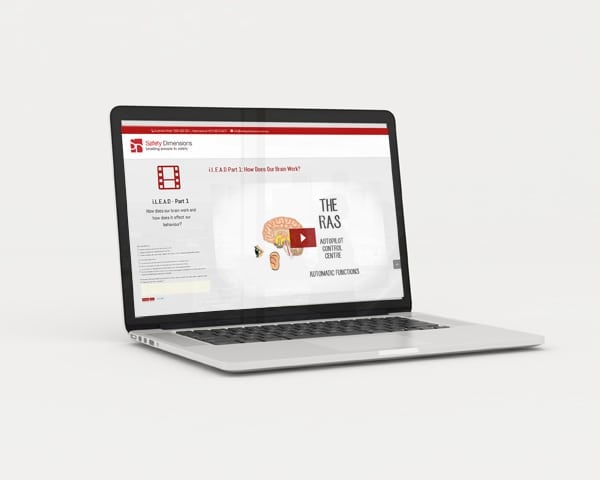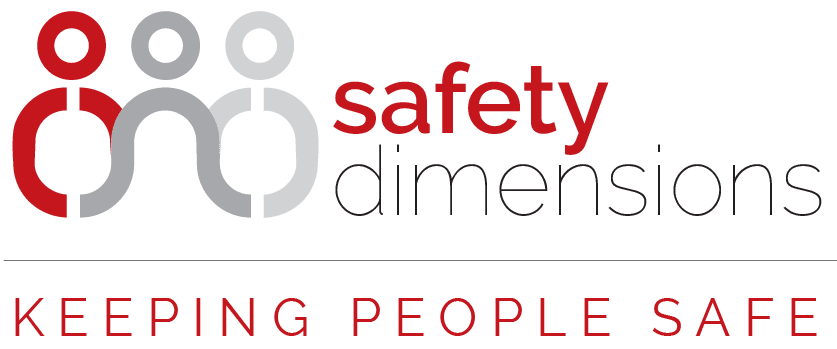
For all the benefits of having the world of knowledge stored in your pocket, why is face-to-face training still a thing’?
Why do countless organisations still undertake face-to-face training – and is there a place for instructor-led training and online learning to work together for the best learning outcome?
Let’s explore…

Why face-to-face has a place:
Humans are complex, we learn in many dimensions
Human behaviour is complex. Generally, we don’t like making changes to our behavior – especially if it’s going to make us uncomfortable in the process, even if it’s of benefit to us in the long term.
To install new habits and skills – usually the purpose of the training we do – you need to artfully engage all learners on multiple levels. That’s often difficult when you’re sitting in front of a screen.
A good facilitator can capture a group within the first 20 minutes of any session. They’re experts at understanding human behaviour, reading a room’, challenging learners in a way that helps them expand their thinking, and giving every learner what they need to get the most out of a session.
Personal interaction
Human beings are social by design – it’s called face-to-face for a reason!
The depth and quality of conversation is unparalleled in face to face training. Conversations are richer and allow for in-the-moment’ dialogue between participants, away from the misinterpretation that can happen online.
Working with peers in real life (IRL), and supported by a live facilitator, also gives us instant feedback both verbal and non-verbal which leads to a richer learning experience.
Face-to-face can be more accessible.
Doing a qualification or training via online delivery favours those who can sit, watch and type – often for a long period of time. While this works for some, other learners may have barriers with language, writing or technology – or a combination.
A facilitator can also quickly pivot the tone, examples or explanations used, and the type of assessments and activities required based on the needs of the participants in the room – often in the moment, based on what the facilitator observes.
For others – particularly if undertaking an accredited course over a long duration – the self-discipline to complete an online program becomes a factor. This is both a financial risk to the organisation if learners don’t complete their training, as well as a missed opportunity for the new learning knowledge to create the required change.
Research has shown that online learning has a lower completion rate. A study by the National Centre for Student Equity in Higher Education looked at completion rates of higher education students and found only 44% of online learners finish their studies compared to 77% of on-campus students.
Quicker results and intense focus
Online learning can be positioned as quicker’ and more convenient however this relies on your people actually finding the time to do the work and complete the necessary assessments.
When you train people face to face and make the time to invest in them being in the room, there are fewer distractions and a higher likelihood of participation, completion and retention.
Learners can get in the zone’ and give 100% of their attention to the program, leading to more successful outcomes.
Integrated assessments
Students of accredited qualifications delivered solely online often give feedback that it’s a struggle to complete. Usually they will need to complete assessments for every unit, often demonstrating the same competency over and over again as it repeats in different units. This means they have to do more, for no additional learning benefit.
Integrated assessment means the facilitator may assess learners once for a competency that can then apply across all the units, resulting in a reduction of time and duplication, without compromising on the assessment quality.
Group dynamics
For organisations, face-to-face training can be a team building opportunity. It allows you to cross-pollinate’ people from your organisation or give work teams a platform to work together to collaborate in a different environment, away from workplace distractions. It’s also surprising how much your people will learn from (and about) each other as they bring their insights and experiences to the training room.
So how do we use online learning?
We believe online learning works best as a support to what happens in the training room so we have designed an online portal with simple user functionality and the ability to generate detailed and usable insights.
We use our online portal in two key ways:
Pre-Work and Refresher Programs
Our online learning portal is used to prepare your people (prior to their program) – to be open and receptive to what they’ll be learning – through short online pre-work, which can involve informative video content, answering questions and giving feedback. After the face-to-face program, our online portal can support your people with a refresher program to make sure the learning sticks -so you receive a return on your training investment.
Culture Surveys & Analysis
We help organisations measure and analyse their current level of Safety Culture’ or Leadership Culture’ through online culture surveys and analysis. Our surveys are designed to take the pulse of what your people believe (and how this impacts their behaviours), so we can partner with you to design programs and interventions that make a difference – and what can be measured can be managed. We then get people to complete the survey again after their program and are able to track and analyse how thoughts, attitudes and behaviors have changed as an outcome of the face-to-face program.
Want to find out more about our online portal?
Safety Dimensions and Leadership Dimensions offer clients an Online Learner Portal with capabilities in the areas of culture surveys, program pre-work and online refresher programs with the ability to measure an organisations safety and leadership culture maturity, prepare learners prior to the commencement of a program, and embed and reinforce the learning after a program has finished.
We do this on our cross-platform, web-based and secure learner focused online portal, designed and customised for the needs of each client.
Find out more about how our online portal can add value to your learning programs, call us on 03 9510 0477, email [email protected] or click the button below to read more.


